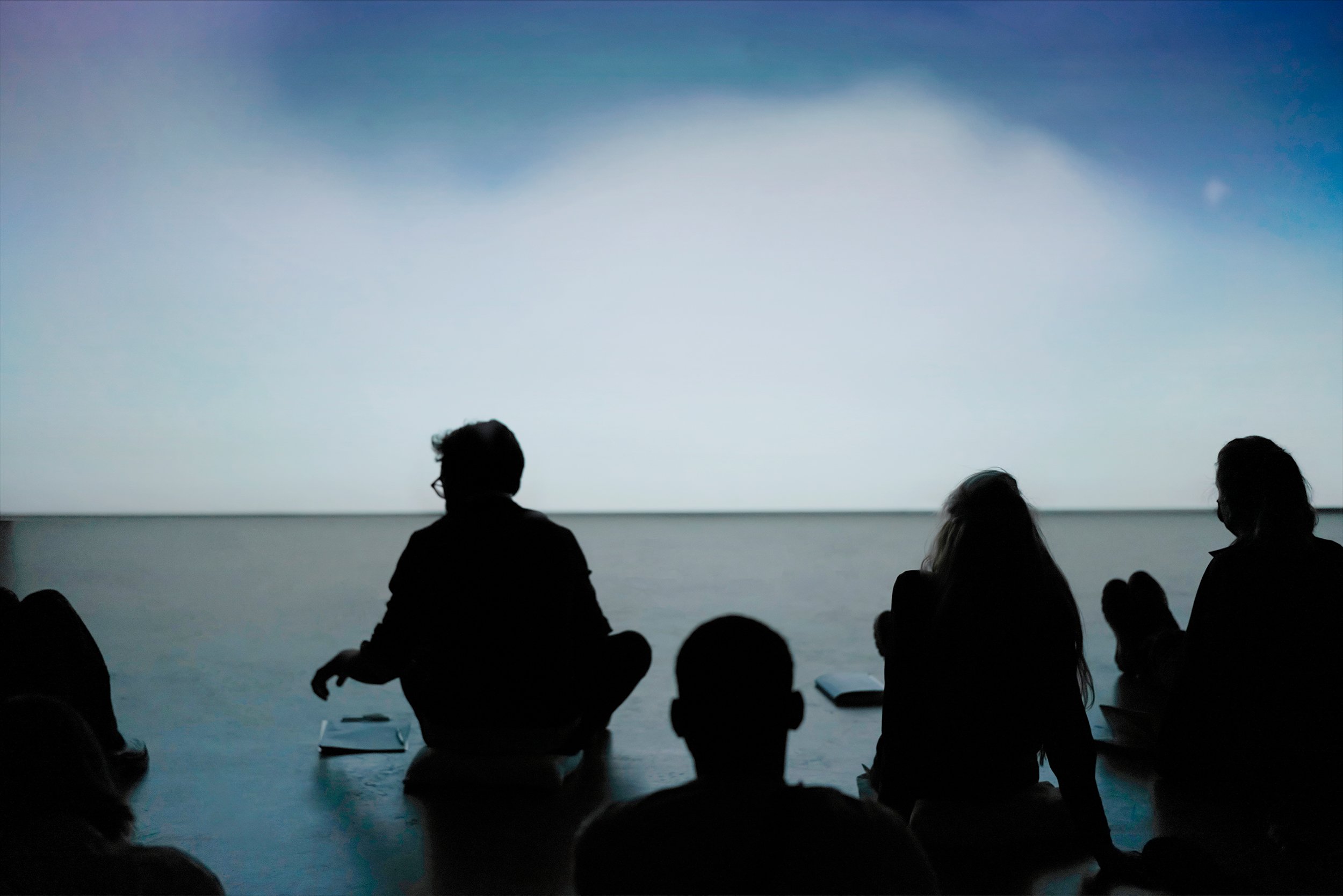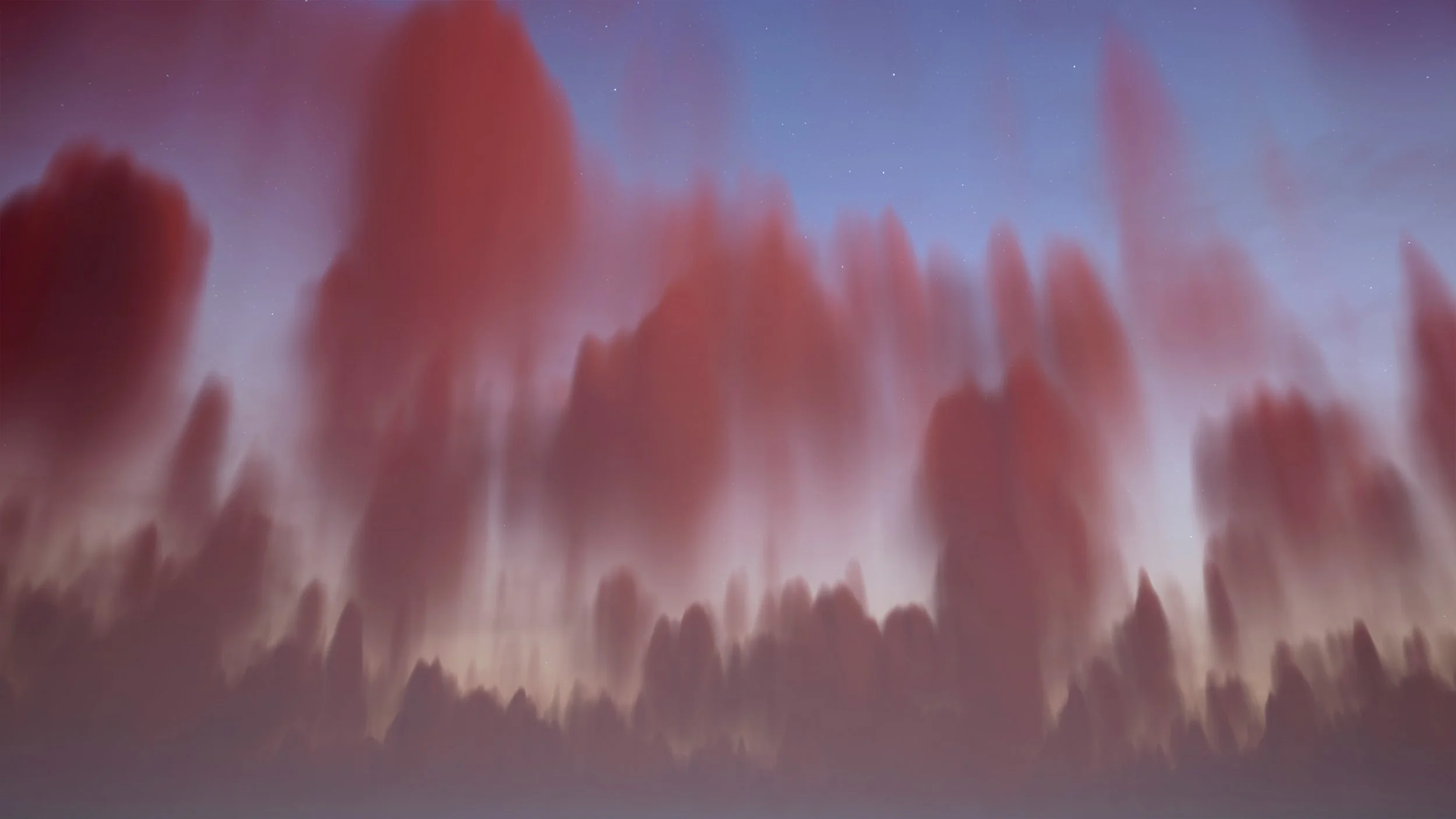Meet Su Yang
Meet Su Yang, a Chinese photographer and visual artist who has blended his unique experiences into his work, currently living in Lausanne, Switzerland.
Su Yang. Courtesy of the artist.
Yang's journey started in a nature-filled military factory community in China, giving him a peaceful childhood. This early serenity was contrasted with the active life in various cities amid China's economic surge in the 90s. With a bachelor's degree in Communication & Design from Shanghai, achieved in 2011, he first made a name for himself in fashion and commercial photography, working with prestigious magazines and fashion brands. Despite his success in commercial projects, Yang felt a strong urge to express his personal artistic voice, leading him to pursue a Master's in Photography at écal (University of Art and Design Lausanne) in 2019.
Su Yang. Courtesy of the artist.
In Switzerland, Yang reconnected with nature, a theme that has been a consistent presence from his childhood. Water became the central theme in his recent works, symbolizing his life journey and his reflections on the relationship between human society and nature. This shift from a busy commercial photography career to exploring more personal themes marks a significant development in his work.
How have the diverse landscapes of your upbringing in China and your life in Switzerland influenced the themes and aesthetics of your photography?
Throughout my life, I've been exposed to a wide range of landscapes, from inland plains to bustling seaside cities, then back to a more natural environment. This experience has fostered my ability to adapt to different surroundings, but it's also led me to contemplate the relationship we have with our environment, both the physical landscape and the cultural one. My goal isn't to judge which is better but rather to explore how these diverse landscapes and environments shape us. Having lived in so many different places, I recently noticed a recurring theme of "loss" and "searching" when revisiting some of my older photographic works.
Water appears prominently in your works; can you elaborate on its metaphorical significance and how it connects to your personal experiences?
In Taoism, water serves as a fundamental metaphor, representing the ever-changing nature of the universe. It embodies the philosophy of "Wu Wei" (following the natural flow), extracted from the vastness of existence. Water symbolizes the constant flux of the world, yet ultimately, these changing phases are all part of the same whole. My own perspective is deeply influenced by the philosophies of Taoism and Buddhism. Throughout my life, I have experienced constant change: traveling to new places, meeting diverse people, and spending time in introspective solitude. Perhaps these experiences have led me to seek out underlying commonalities in the midst of change. This fascination with unity amidst change manifested in a photo book dummy I created, centered around the theme of "the lake." While spending countless hours by the water's edge, I captured countless images of its surface. Over time, I came to feel a profound connection – a sense that all our experiences, like the waves and ripples on the water, are ultimately part of a larger, unified whole.
Your career spans commercial and artistic photography. How do you navigate the creative challenges in each field, and what synergies have you found?
In my personal projects, I typically begin with a particular feeling or intuition, which I then translate into visual imagery. It's more about a process of self-discovery, examining your own thoughts, concepts, and subconscious. This approach requires a sustained level of sensitivity. On the other hand, commercial photography presents a distinct challenge. Each shoot demands the precise communication of a specific aesthetic or value through the image. These goals are usually predetermined and serve a clear purpose, often requiring completion within a limited timeframe. One can say that personal projects demand introspection and self-exploration, while commercial work is an exercise in external awareness. It necessitates control and the ability to make decisions that influence those around you. Having experience in both areas is undeniably fortunate, as they significantly complement each other. The skills and experience accumulated in one domain prove valuable in the other.
Your art often contemplates the human-nature relationship. What messages or reflections do you hope to convey through this thematic focus?
My personal projects delve into the relationship between humanity and nature, specifically within the context of the Anthropocene epoch. The impetus for this exploration stems from my own experiences growing up in a metropolis. After spending a significant amount of time away from nature, the process of reconnecting with it has instilled a deeper appreciation for its value. In today's world, we face crucial questions: where do we go from here, and what truly matters to us as human beings? These are fundamental issues worthy of profound reflection. Through my images, I aspire to evoke a sense of connection with the natural world. However, I also maintain a balanced perspective, acknowledging that nature can be a force of both beauty and raw power, capable of cruelty and danger.
Transitioning from commercial photography to a more personal artistic expression, how have your motivations and creative process evolved?
The desire to create something that truly expresses myself has always been there, but during the years I was heavily involved in commercial photography, there wasn't much opportunity to pursue it. It wasn't just a matter of having the time; it was more about the mental shift required. I don't think I can juggle projects that demand such different mindsets – at least not at the same time. So, this yearning kind of stayed dormant until a point came where I knew it was time to make something that spoke for me. It felt like there was no other option. That's when I discovered this master's program in contemporary photography in Switzerland.
In light of your artistic journey and the changes you’ve witnessed, how do you perceive the role of photography in addressing global environmental concerns?
Photography is undeniably intuitive. Its power as a communication tool remains remarkably efficient. I find this especially appealing. A well-crafted image can bypass the limitations of language barriers and foster connections that transcend borders. Even in a world saturated with information overload and dominated by algorithm-driven gratification, photography retains its unique position due to its immediate impact and powerful ability to communicate.
Looking ahead, what are the key themes or projects you plan to explore, and how do they represent your artistic growth and vision?
The exploration of water in its various forms will undoubtedly remain a significant theme in my future work. I view this exploration as akin to a spiritual practice, a journey that can unfold throughout my life. Additionally, I am driven to delve deeper into environmental issues arising from the Anthropocene epoch, as well as the diverse phenomena that emerge from social processes. I believe that by immersing myself in these topics through dedicated study and active participation, I will naturally experience artistic growth.
Quick Series - 'What These Words Mean to Su Yang'
Transcendence - The contentious boundaries between art and fashion.
“I honestly don’t see boundaries between art and fashion. I believe that fashion and art are inherently intertwined, with fashion itself constituting a form of art. However, striking a balance between commercial imperatives and personal expression can be quite a challenge.”
Transformation - The essence and impact of transformation.
“You know, some of my close friends once told me that I have “transformation" from time to time. I still don’t know what it means, but I guess I like that :)”
Connection - What connection means to you?
“It’s a good question, “connection”. I love that word. I think that’s even the reason I became a photographer, and maybe all I do is to study different ways of connection.”
Su Yang. Courtesy of the artist.
Su Yang's artistic journey is one of personal growth and transformation, and it is a vivid portrayal of the universal search for meaning, connection, and identity in a rapidly changing world. His transition from capturing the dynamic urban landscapes of China to reflecting on the serene and thought-provoking aspects of water in Switzerland highlights a deep exploration of his roots and influences. As Yang moves between the worlds of commercial and artistic photography, his work serves as a reflective look at our place within nature and society. His ongoing projects promise to further explore these themes, inviting us to contemplate alongside him.




























